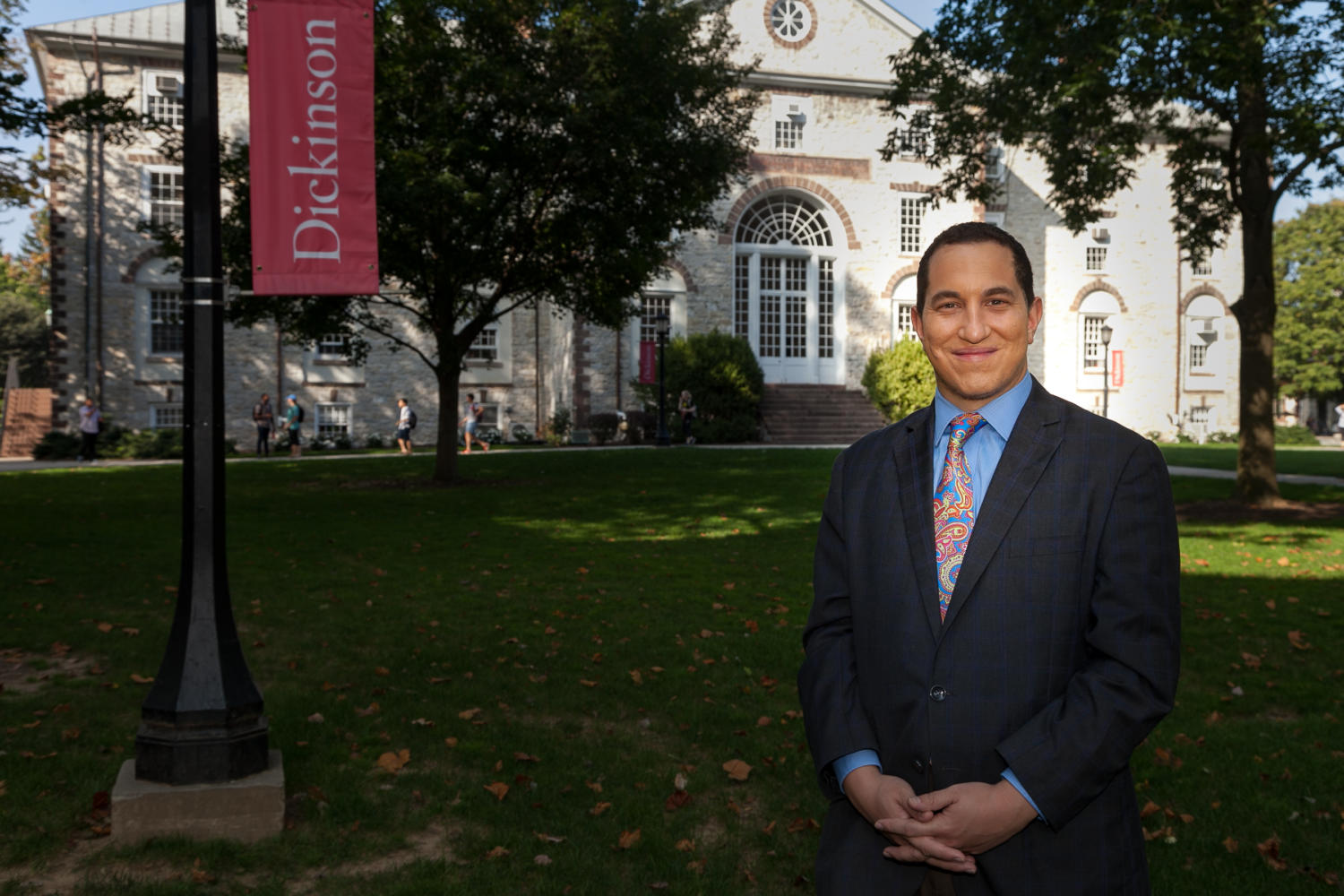Constitutional Address Speaker Highlights Civil Discussion in America
Alex Heffner came to Dickinson on Sept. 19.
The host of a PBS show has claimed that our “social fabric” is deteriorating, in one of the Clarke Forum’s shortest lectures this year.
Alexander Heffner, a journalist and the host of The Open Mind on PBS, spoke for just over 21 minutes at the Clarke Forum’s Constitutional Day Address, on Monday, Sept. 18. In his brief lecture, he spoke on the state of civil discussion in America: specifically, how far it has degraded, in Heffner’s opinion, over the past two years.
Sarah Duane ’20, a Clarke Forum student project manager, gave a brief introduction thanking the sponsors and introducing the lecturer. Heffner began his opening statement saying he has visited colleges across the nation in an attempt to learn how to best connect with the generation following his own. Heffner quickly drew attention to the focus of the event, what he saw as “a crisis of incivility that is a vicious cycle.” He described how a stubbornness and rejection of listening to new ideas has taken hold of American politics, and called on former-President Obama’s appointment of Merrick Garland to the Supreme Court as an example. Despite a strong resume and apparent centrism, and an appearance as a consensus candidate, Heffner claimed that Garland’s appointment failed because of the obstructionism caused by incivility and bigotry.
As far as fault for this state of affairs, Heffner focused on an increasing lack of integrity, across the board of media outlets, and especially online, as a critical problem. “Incentives are driven to fuel, to further fuel, that crisis,” he said, “in the way that Facebook operates, in the way that cable news culture operates, in the way that even newspapers that might be viewed laudably… that leads them to have the wrong incentives,” as he drew attention to false equivalency during the 2016 presidential election that he described as “rampant” misinformation.
Heffner also repeatedly emphasized that there is opportunity for change and improvement. He discussed the importance of individual engagement and individual values when evaluating information, and criticized the lack of “audits” of social media from its users or those with financial stake in it. Concluding with a hopeful note, Heffner stated, “to me, the uncivil age does not have to be permanent… I want to assert that [that ship] has not sailed.”
In the following question and answer session, lasting another 35 minutes, Heffner expressed disappointment with the theatrics of today’s political climate, and the lack of substantial policy discussion.
When asked about his thoughts on the modern format for political debates, and Heffner stated it was a deconstruction of organic discussion, criticizing particularly the fact that short sound-bites and tweets lack context, which is always critical for evaluating information.
Michael Kozinski ’21, said, “[Heffner] was very qualified to put on this event… He has experience in attempting to and successfully putting on events to get Americans to think more civilly about politics and not seeing the other side as uncaring or unfeeling… but rather as fellow Americans who have the best interests of the country at heart.”
Project Superviser Sam Weisman ’18, thought the length of the event was appropriate, especially because of the theme of the lecture.
“I noticed that there were more community members and less students than usual in a lecture that panned social media and the political participation of “millennials,”” he explained. “Keeping with the title of the event, Heffner finished his lecture early and opened up for an extended question and answer session, where he described examples of working civil discourse.”
Abby Israel ’20 also thought that the timing of the event was good for the lecture.
“He could have expanded on a few points, but if he had talked for the full hour I think I would’ve lost interest,” she explained.
When asked about civil discourse on campus, Kozinski said that “a zero-tolerance policy for, you know, shouting out or interrupting lectures, and a zero-tolerance policy for violence would be a step in the right direction” and remarked that it was important for people to be open to challenging viewpoints.”






